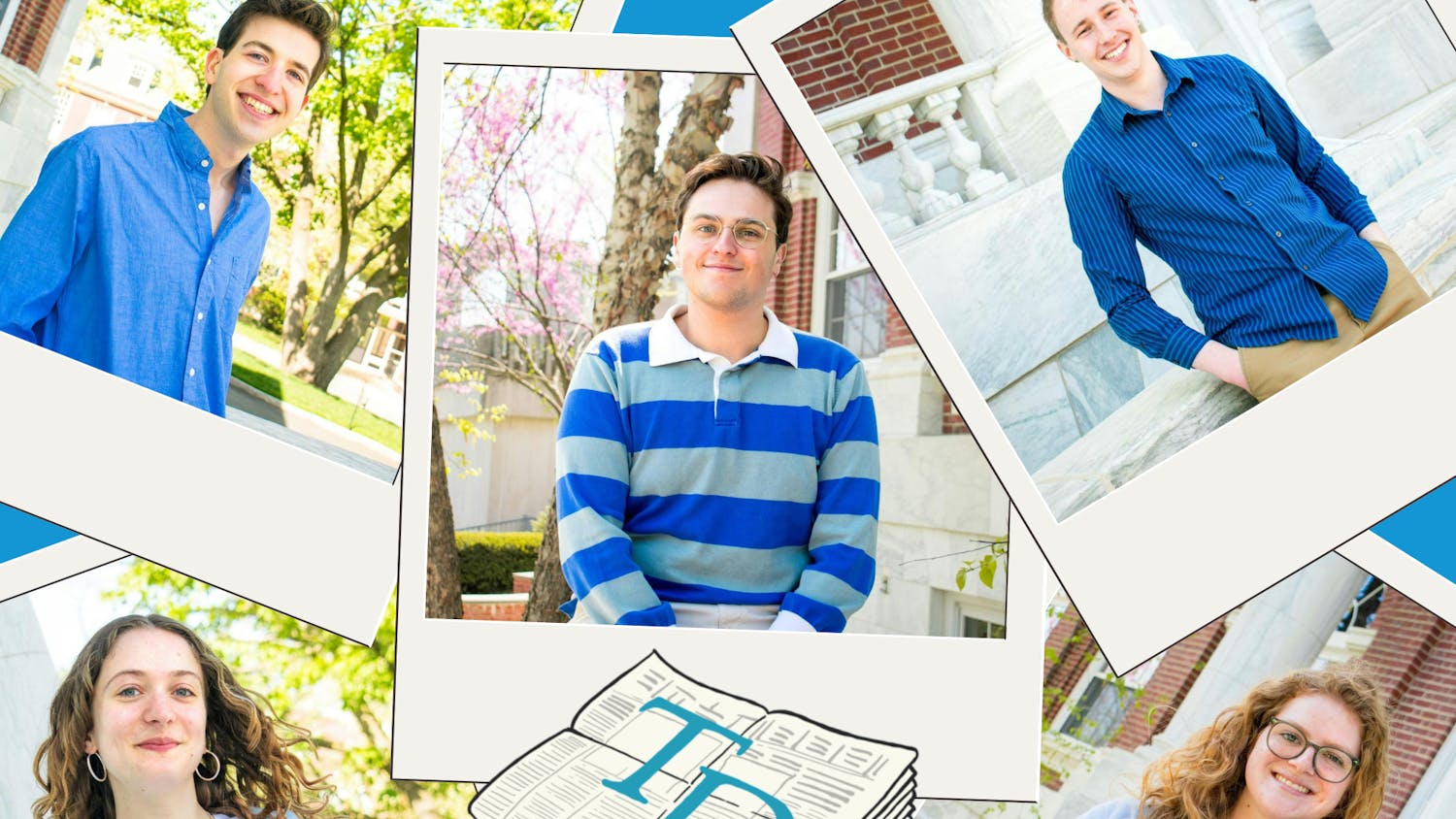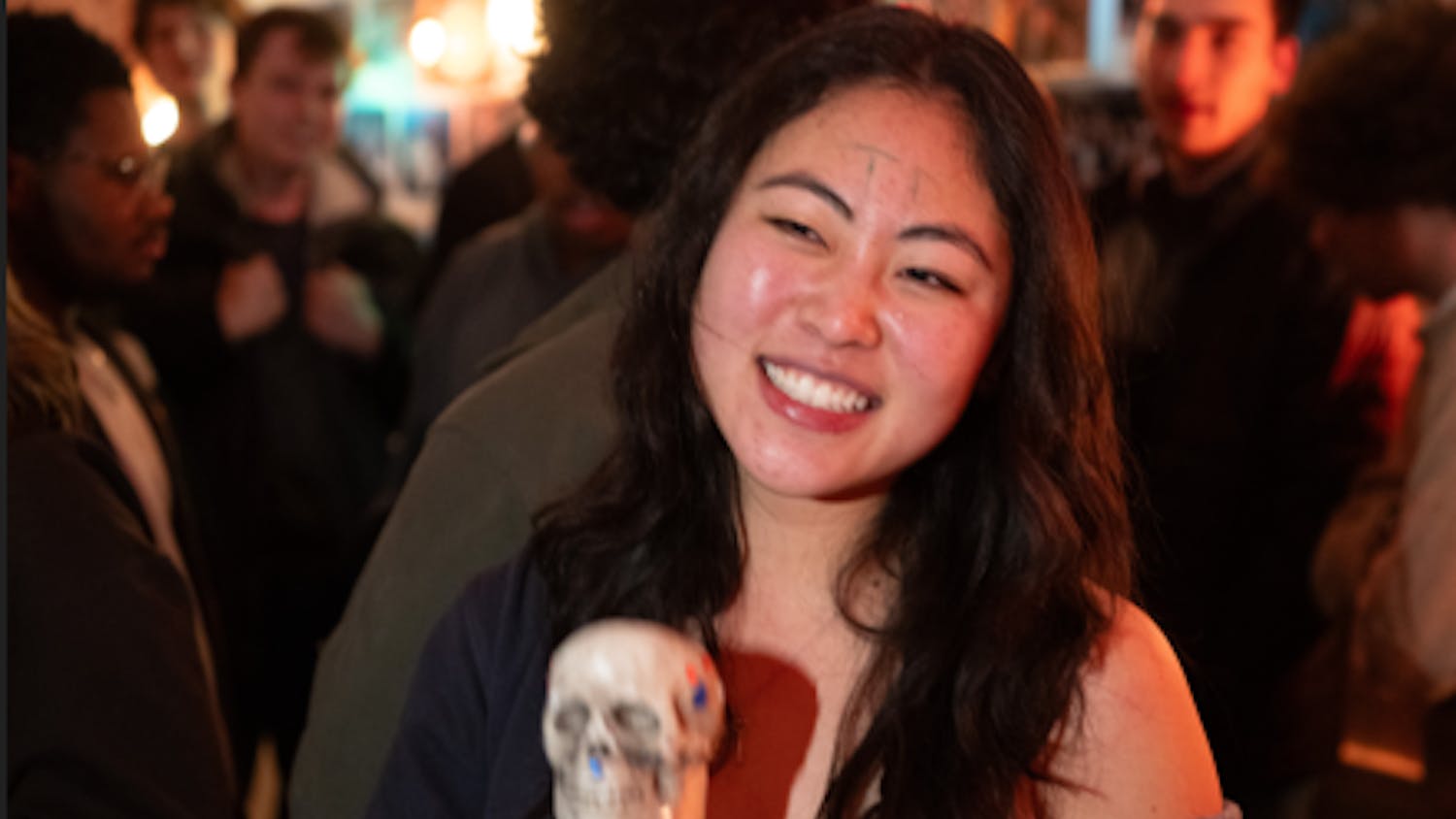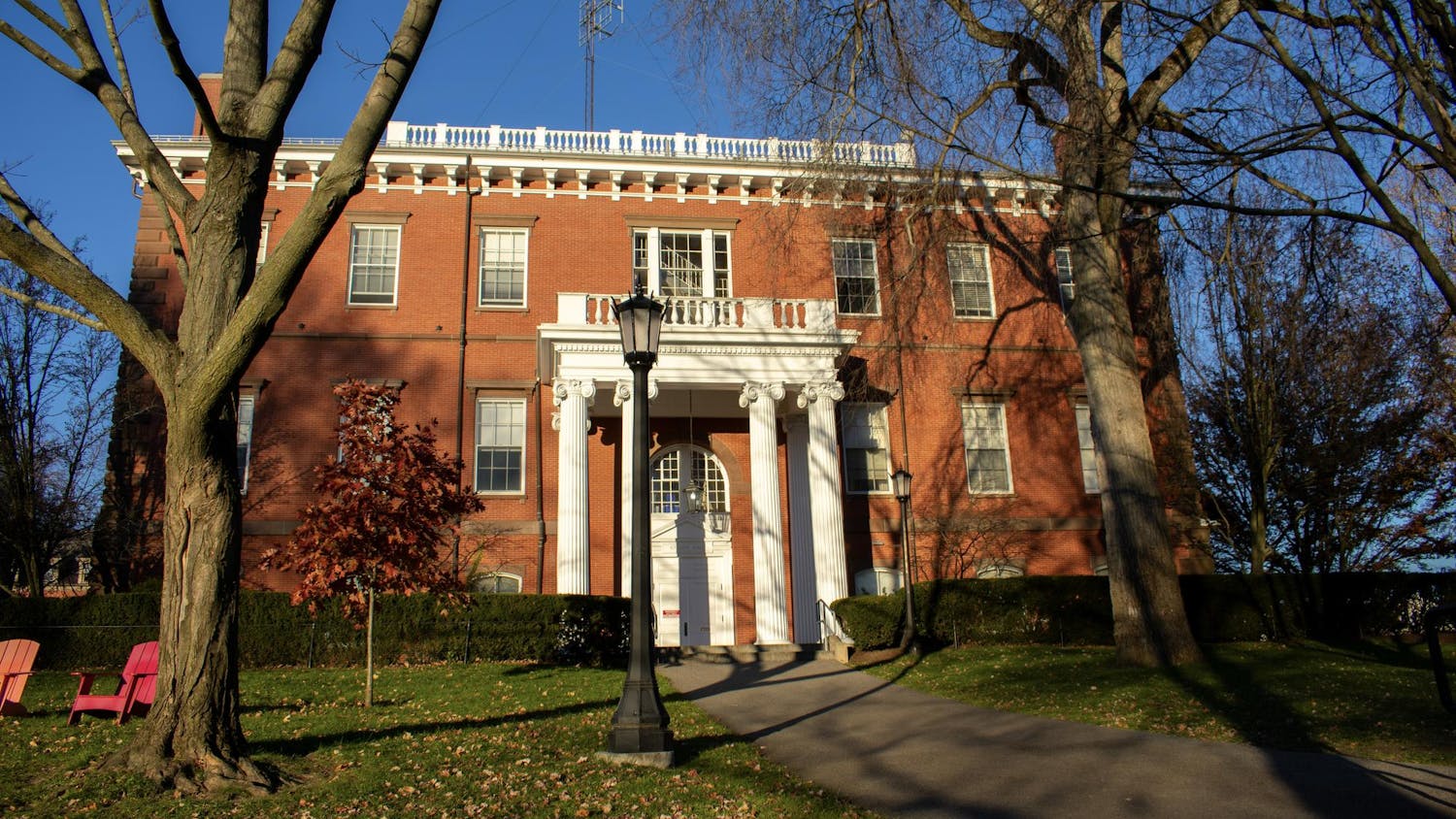Tiffany Filler, a former doctoral student in her final year at the Cummings School of Veterinary Medicine at Tufts, was expelled on Jan. 16 after a months-long investigation by the university into her alleged grade hackingin the 2018 spring and summer sessions, according to a TechCrunch article written by journalist Zack Whittaker. Both Filler and Whittaker dispute Tufts' charges of grade hacking.
Since Filler's expulsion, the Harvard Graduate Students' Union-United Auto Workers (HGSU-UAW) have been circulating a petition demanding due process for her. The petition cites potential discrimination based on Filler's immigration status as well as Whittaker's article in Filler's defense. The petition has 347 signatures, close to 200 of which are from Tufts undergraduates and alumni.
Filler has moved back to her home in Toronto since her expulsion and is currently looking for work or to return to another veterinary school, but she told the Daily that this will be difficult considering her expulsion.
"I've been looking at different vet schools [to see] if I could transfer credits if at all possible ... [but if] universities see that expulsion notice, they're going to freak out," Filler said. "Also, most of them require a dean's recommendation and that's not exactly something I can look forward to."
Filler was first notified of an investigation on Aug. 22, 2018,after Barbara Berman, the associate dean of student affairs for the Cummings School, called her to the Grafton campus in an email. There, Filler met with Berman and Nicholas Frank, the associate dean for academic affairs.
"Dr. Frank and I need to meet with you at that time regarding an important and time-sensitive issue," the email read.
Filler said she only was notified of an investigation and not the nature of the charges brought against her. After the Aug. 22 meeting, Berman sent an email to Filler that spoke only of her "computer issues" without bringing up possible disciplinary action.
At the time, the Cummings School's Student Ethics and Grievance Committee (SEGC), which would decide the charges on Filler, had already obtained a detailed report from Tufts Educational Technology Services (ETS) and Tufts Technology Services' Office of Information Security. The heading on the report indicates that it was sent to the SEGC on Sept. 28, 2018, nearly a month before Filler would be notified of the charges against her. The document also states that the investigation began on July 9, 2018 and ended Aug. 20.
Filler said she was notified of the nature of the charges on Oct. 18. Filler, as quoted in the TechCrunch article, and the petition both accuse Tufts of not following its own terms of due process, as outlined by the Cummings School Student Handbook.
The handbook states on page 49 that "The student about whom a Complaint or Inquiry is made will be informed in writing of the type of allegation (Complaint or Inquiry) and the substance of each allegation at least seven days before hearing of the Ethics and Grievance Committee."
Charges and Expulsion
The charges against Filler include allegations that she electronically changed her grades and the grades of her classmates through a Tufts University Sciences Knowledgebase (TUSK) account under the name "Scott Shaw" with the username "sshaw02."
According to the ETS document sent to the SEGC, the account was first discovered after investigating the deletion of an assessment on July 9, 2018.
Filler was implicated in the creation and inappropriate usage of this account for several reasons, according to the document.
"We ... saw a pattern where the only legitimate login from the same place — IP address — at the same time was tfille01 (Cummings School student Tiffany Filler) access," the report says.
The report adds that ETS "saw a pattern of activities that would benefit tfille01," following up with five incidents of abuse, although the report acknowledges that "a lot of activity" was seen.
In an email to Filler sent on Dec. 10, 2018, Cummings School Dean ad interim Joyce Knoll said the account sshaw02 first appeared on Dec. 12, 2017 "from TF's [Tiffany Filler's] residential IP address." According to Filler and the TechCrunch article, Tufts administration never shared which IP address it found with her, or how it found it.
Filler said she had three housemates using the same IP address, including her landlord.
The first recorded incident with the sshaw02 account occurred on Feb. 13, 2018 at 2:02 pm, according to a summary of the incidents from the SEGC provided by Filler. The incident report accuses Filler of using "the sshaw02 account to look at the answers of [a] quiz before she took it."Filler said she has no recollection of the assessment, which was a bonus quiz in a Small Animal Medicine & Surgery II class. In a screenshot from Filler's private messages, a classmate of hers also said she did not remember taking the quiz.
The bonus quiz changed Filler's grade in the class from a 99 percent to a 103 percent, worth a total of four points, according to documents provided by Filler to the Daily.
Filler said that several other students' grades were improved, with only one person's falling. As of today, no other students have been charged with grade hacking, according to Filler and the TechCrunch article.
The documents also state that the attacks continued to occur periodically until July 2018. The nature of the hacks included changing grades, attempting to log in to other students' accounts, posting new assignments with higher scores and looking up answers to assessments.
Knoll originally met with Filler on Jan. 9 to announce her expulsion from Tufts, according to a letter from Knoll.Filler appealed the decision and presented more evidence to Knoll, but Knoll reaffirmed the expulsion on Jan. 16.
Patrick Collins, executive director of public relations for Tufts, said in an email to the Daily that the Tufts administration stands by its decision.
"We understand that the story — and the social media attention it has received — has upset a number of people, including students, alumni, and others, who have raised concerns about the university’s review," he wrote. "We are confident in our determination, which was based on the totality of evidence uncovered during our extensive review. We recognize the gravity of student disciplinary decisions, and we take action only after thorough and thoughtful deliberation."
Alibis and Explanations
The TechCrunch article, which was published on March 9, raises questions about the validity of Tufts‘ accusations against Filler, featuring the results of a month-long investigation conducted by Whittaker that uncovered and confirmed several alibis Filler presented to the administration. These alibis were confirmed in the documents Filler sent to the Daily.
Several of the incidences occurred early in the morning, such as an incident on June 27 at 1:03 a.m. Filler provided the Daily with screenshots of her sleep tracker app, which showed her to be asleep at these times.
In other instances, Filler says she was away from her computer entirely. A June 28 hack described by Tufts occurred between 5:30 and 6:30 p.m. Filler provided both the Daily and the Cummings School administration with a screenshot of a picture of her, which was placemarked at the Mark Twain House in Hartford, Conn. and timestamped 5:17 p.m., and another screenshot of a photo of her in front of the house at 6:11 p.m.
Filler also had reported malware on her computer to Apple Support during the time in which the attacks occurred, which were corroborated through transcripts of the phone call sent to Filler by Apple Support.
During the phone call, which occurred on Nov. 14, 2018, Filler explained that her computer was “was behaving weirdly and … [her] mouse was acting on its own and the green light for the camera started turning on.” The Apple technician recommended that Filler back up and reset her computer to factory settings, and Filler ultimately took her computer into a local Apple store for these services, according to the TechCrunch article.
Knoll remained unconvinced, asking Filler in the Jan. 16 letter, “Why wait until after you’d been informed that you were going to be expelled to show me months’ old photos?”
Knoll also questioned the validity of the photos Filler provided.
“Date stamps are easy to edit,” Knoll added later in the letter.
The TechCrunch article, however, confirmed through a former National Security Agency hacker and digital forensics entrepreneur that the date and location stamps presented by Filler did not appear to be modified.
Deportation and Petition
After being expelled, Filler, a Canadian citizen, said she was given one day to leave the United States. In an interview with the Daily, Filler also said she was required to repay $10,000 worth of student loans she had accumulated in her time at the Cummings School.
She has since sought legal counsel but says that she cannot afford the prices that many lawyers quote her, which she says are often in the six-figure range.
In an electronic message to the Daily, Filler clarified that Tufts allowed her six months without needing to pay back her loans as of the date she was expelled, which is the standard time given to students after they graduate before federal student loan payments are due. According to the TechCrunch article, Filler has already been contacted by Tufts to start collecting her loan repayments.
In response to this, Filler contacted several graduate student unions, such as HGSU-UAW, who have since drafted a petition decrying Filler’s case as discriminatory.
“We are concerned that Ms. Filler may have been treated differently by the Cummings School because of her immigration status and national origin,” the petition reads.
Filler confirmed this, saying that she felt vulnerable as an international student lacking both the money and legal privilege to defend herself against Tufts.
Niharika Singh, an organizer with the HGSU-UAW, was involved in writing the petition with the organizing committee surrounding the petition. Filler confirmed that she reviewed the petition for accuracy before it was published.
As a Canadian international student herself, Singh found Filler’s case to be particularly important for the rights of international students.
“To my mind, it’s like advocating for Tiffany is advocating for ourselves, is advocating for the larger international student community on our campuses across the country,” she said in an interview with the Daily.
Singh also emphasized Filler’s issue as a “violation of civil rights,” adding that the main demand of the petition is due process for Filler. Singh also explained that third-party arbitrations for Filler, which Harvard graduate students call a “no carve out” grievance process, could have helped protect her from said civil rights violations.
“That puts pressure on the employer to actually respond,” she said. “I think there are just very concrete ways … like building power through mobilizing students and workers in your support that you address situations like this before they get to the point of expulsion.”
Cummings School students are not represented by a union.
Filler said she hoped to continue veterinary school or research in the future.
“I would love to continue veterinary school because that is my passion, but I’ve always been interested in research. So I’m thinking of potentially just going into the sciences again and trying to focus on potentially getting a Ph.D. somewhere down the line,” she said.
Jessica Blough contributed reporting to this article.
More from The Tufts Daily





